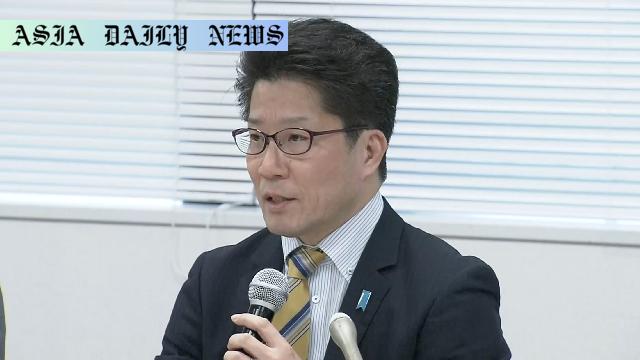Abductees: Japanese families urge the government to make abductees’ return a priority and apply stricter sanctions if no action is taken.
Families of abductees demand urgent action from Japan and set strict conditions for North Korea.
They urge for stricter sanctions if abductees are not returned in time.
New plans prioritize humanitarian assistance and economic ties only if demands are met.
The issue’s urgency grows as the families’ aging makes reunification more pressing.

Introduction: Abduction Crisis and Growing Urgency
The families of Japanese citizens abducted by North Korea have raised renewed concerns over the unresolved issue. Represented by a group advocating for their loved ones’ return, they emphasize that time is running out due to the aging of the abductees’ parents, who wish to be reunited with their children while still alive. The urgency of this matter has led to the adoption of a new action plan aimed at ensuring their immediate return.
Push for Government Action
In response to long-standing stalemates in negotiations, the families are urging the Japanese government to take a stronger stance. The group demands that Tokyo make the safe return of abductees a key precondition for providing humanitarian aid, lifting sanctions, and initiating any economic collaboration with Pyongyang. Without ensuring this basic human rights issue is resolved, the families believe it would be inappropriate to establish normalized ties with North Korea.
New Approach: Conditional Support and Stricter Sanctions
Previously, the families stated they would not oppose the Japanese government offering humanitarian aid in exchange for the release of all abductees. However, the new plan reflects a shift toward stricter conditions. If abductees are not returned within a specified timeframe, the group intends to press for even harsher sanctions on North Korea. This pivot demonstrates the families’ growing frustration with North Korea’s inaction and underscores the importance of setting clear consequences.
Family Head’s Emotional Plea
Yokota Takuya, head of the group, expressed his deep concern over the dwindling time available for parents to reunite with their missing children. In an impassioned statement, he declared that the families would make no concessions in addressing North Korea’s gross human rights violations. Takuya emphasized that the safe return of abductees is non-negotiable and called on Japan to adopt proactive measures to resolve this crisis.
Human Rights Abuses and the Call for Justice
The group condemned North Korea’s ongoing human rights abuses, labeling the abductions as egregious violations of international norms. By emphasizing the humanitarian dimension of the crisis, the families aim to rally both domestic and international support. Advocates are working tirelessly to draw attention to the plight of the abductees and their families, many of whom continue to suffer in silence.
Policy Shifts and Public Support
Public sentiment in Japan appears to align with the families’ cause. Citizens and advocacy organizations are joining forces to demand accountability and moral responsibility from North Korea. The government faces increasing pressure to address this issue through diplomacy, sanctions, or other strategic measures. With the stakes higher than ever, the public’s backing could play a crucial role in driving meaningful change.
Looking Ahead: A Collaborative Path Forward
The resolution of the abduction issue requires coordinated efforts from multiple stakeholders. While Japan holds the primary responsibility, international allies and humanitarian organizations must lend their support. By leveraging diplomatic channels and maintaining a firm stance on sanctions, there is hope that North Korea may eventually respond to the demands for justice. The families remain steadfast in their mission, advocating tirelessly for their loved ones’ return.
Conclusion: A Race Against Time
The abduction crisis in Japan is both a humanitarian and a human rights issue. With the aging of parents who have been waiting for decades to reunite with their children, the urgency of the situation cannot be overstated. The new action plan reflects not only the families’ determination but also their willingness to adapt and push for decisive action. As this chapter in Japan-North Korea relations unfolds, one can only hope that justice and humanity will ultimately prevail.



Commentary
An Urgent Humanitarian Crisis
The plight of families whose loved ones have been abducted by North Korea is a heartbreaking reminder of the devastating impact of human rights violations. These families have waited for decades, clinging to the hope of one day reuniting with their children, siblings, and relatives. As time runs out, the urgency to resolve this issue only grows. It is not just a matter of national interest; it is a moral crisis that demands the world’s attention.
Balancing Diplomacy with Justice
The Japanese government faces a complex challenge: addressing the families’ demands while navigating the intricate dynamics of international diplomacy. Striking the right balance between offering incentives, like humanitarian aid, and imposing consequences, such as sanctions, will be critical. What is clear, however, is the need for a unified and unwavering approach to ensure that North Korea respects the basic human rights of those it has wronged.
A Responsibility Beyond Borders
The international community cannot turn a blind eye to this crisis. North Korea’s actions represent more than just a violation of Japan’s sovereignty—they expose a blatant disregard for fundamental human values. By supporting Japan in its quest for justice, other nations can send a strong message that human rights abuses will not be tolerated, regardless of where they occur.
A Beacon of Hope
Despite the immense challenges, the families’ perseverance serves as a source of inspiration. Their unwavering determination to bring their loved ones home underscores the resilience of the human spirit, even in the face of adversity. Their fight is a testament to the power of love, hope, and justice, reminding us all of what truly matters in the end.